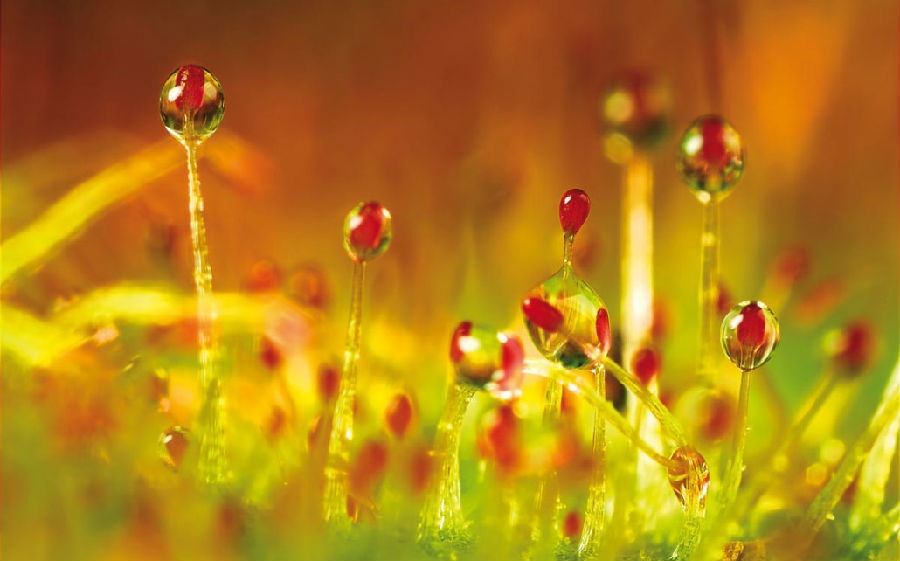(单词翻译:单击)
听力文本
Plants are a lot smarter than we thought. According to researchers, they are capable of making intelligent decisions regarding risk. Scientists have discovered that one plant, the humble pea, can make decisions regarding how to survive best, even though it does not have a brain. Researchers from the UK's Oxford University and Israel's Tel-Hai College grew several pea plants that had their roots separated between two pots. Each pot contained differing amounts of nutrients. One pot always had the same amount, while the other pot varied between a lot and a little. The plants turned out to be remarkably consistent at diverting their roots to the pot with the most nutrients.

The research paper will be published this week in the 'Current Biology' journal. Researcher Alex Kacelnik said the experiment, "raises a question, not about plants, but about animals and humans". He wondered whether the pea plant might be more efficient in using its limited decision-making resources than humans. He said: "We have a very fancy brain, but maybe most of the time we're not using it." Professor Kacelnik said he did not think that pea plants were intelligent in the human sense, but that they exhibited complex behaviours to efficiently take advantage of natural opportunities. It would be interesting to see how our lives would be different if we adopted similar strategies.
中文翻译
植物比我们想象的要聪明。据研究学家指出,它们在遇到风险时刻能做出理智决定。科学家发现即使豌豆没有大脑,它也可以决定如何更好的生存。英国牛津大学和以色列Tel-Hai大学的研究学家种植了几颗豌豆,将种子分别放在两个花盆中。每个花盆中的营养物多少不同。其中一盆的含量始终不变,另一盆的营养物分含量多和含量少。结果种子毫无例外地向营养多地的地方转移。
研究报告将于本周刊登在《当代生物学》杂志。研究学家艾利克斯·卡塞尔尼克称,这项实验提出了关于动物和人类的问题,而不是植物。比起利用有限的决策资源,豌豆看起来比人类更有效率,这引起了艾利克斯的好奇。他称:“我们的大脑非常神奇,但在大部分时间里,我们从未使用过它。”卡塞尔尼克教授认为,从人类意义上而言,豌豆并不聪明,但为了有效利用自然恩赐,它们的行为也会变得复杂。若人类遇到类似情况,观察人类的一举一动定将非常有趣。
译文属可可原创,仅供学习交流使用,未经许可请勿转载
重点讲解
1.decision-making 决策
例句:Shortening the decision-making process would provide one solution.
缩短决策过程会是一个解决办法。
2.take advantage of 利用
例句:We can take advantage of new technology more quickly by farming out computer operations
把计算机业务分包出去,我们就可以更快地利用新技术。
3.capable of 能力
例句:Their example shows us what we are all capable of.
他们作为榜样向我们展示了我们都能做些什么。
4.a lot 许多
例句:He said a lot to hearten me.
他对我说了许多鼓励的话。
听力题目
1) Who said plants were capable of making intelligent decisions?
a) botanists
b) researchers
c) gardeners
d) a humble person
2) What did scientists say the pea plant did not have?
a) a nose
b) eyes
c) ears
d) a brain
3) What was the university in the research?
a) Tokyo
b) Harvard
c) Oxford
d) Delhi
4) What did each pot contain?
a) nutrients
b) grass
c) pellets
d) worms
5) Which pot did the roots choose most of the time?
a) the biggest one
b) the one with the most nutrients
c) the green one
d) the most expensive one
6) What is the name of the journal the research will be in?
a) 'Current Biology'
b) 'Currently Biology'
c) 'Current Biological'
d) 'Currently Biological'
7) What did the researcher say the experiment raised?
a) risk
b) money
c) a question
d) peas
8) What kind of brain did the researcher say we had?
a) a fancy one
b) a pea-brained one
c) a superior one
d) a grey one
9) In what sense did a professor say pea plants were not intelligent?
a) fashion sense
b) nonsense
c) common sense
d) the human sense
10) What did the professor say plants took advantage of?
a) beans
b) other plants
c) natural opportunities
d) researchers
听力答案
1.b
2.d
3.c
4.a
5.b
6.a
7.c
8.a
9.d
10.c


